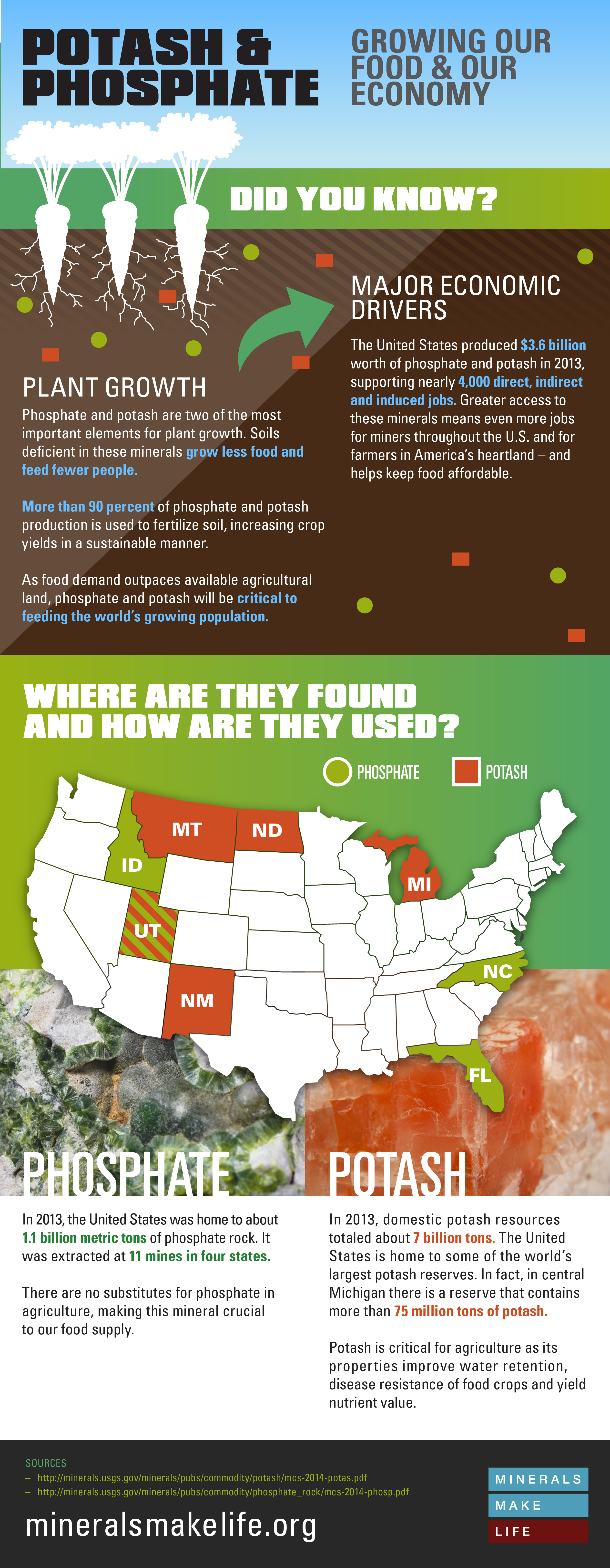May 16, 2014
Iron Ore Serves as the Backbone to Nearly Every Industry
It comes as no surprise that iron ore is considered the strength ...
Read More ›
In addition to advancing U.S. technology and innovation, minerals are vital to our nation’s food supply and help fuel our domestic agriculture industry.
For example, did you know that more than 90 percent of phosphate and potash production is used to fertilize soil, increasing America’s crop yields in a sustainable manner? In fact, soils deficient in these minerals grow less food and feed fewer people. As food demand outpaces available agricultural land, phosphate and potash will continue to be critical to feeding the world’s growing population.
Moreover, phosphate and potash contribute to the strong minerals mining industry and America’s economy. The United States produced $3.6 billion worth of phosphate and potash in 2013, supporting nearly 4,000 direct, indirect and induced jobs. Altogether, industries utilized minerals to add more than $2.4 trillion to the U.S. GDP in 2013.
Unfortunately, despite the vast domestic reserves of these minerals, our permitting process obstructs access to these crucial minerals. As noted above, soils deficient in phosphate and potash produce less crops, and therefore feed less people—a huge threat to global stability as our world population increases. By streamlining the federal permitting process, we can not only support job opportunities and our economy, but also secure our food supplies and global stability.
